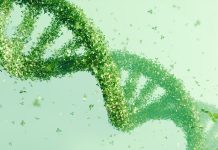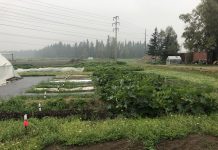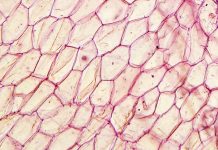Open Access Government produces compelling and informative news, publications, eBooks, and academic research articles for the public and private sector looking at health, diseases & conditions, workplace, research & innovation, digital transformation, government policy, environment, agriculture, energy, transport and more.
Home 2024
Archives
Tuning into musicians’ wellbeing: Research on music performance anxiety (MPA)
The Music and Mental Health Research Clinic (MMHRC) at the University of Ottawa’s Institute of Mental Health Research (IMHR) at The Royal is investigating how to reduce music performance anxiety (MPA) and the benefits of specific coping strategies for musicians.
Welfare of pet primates for sale in the United States
Dr. Melissa Seaboch, Professor and Department Chair at Salt Lake Community College, charts the welfare of pet primates for sale in the United States.
A game that poses a challenge to artificial intelligence
Steven J. Brams, hailing from New York University, unveils a game that poses a challenge to artificial intelligence.
Environmental weathering transforms plastic pollution
The prevalence of plastics in our daily lives is reflected by their ubiquity in nature. Jeffrey M. Farner from the FAMU-FSU College of Engineering, details how environmental weathering transforms plastic pollution.
A promising approach to preventing developmental dyslexia
David Mather, an Independent Researcher at the University of Victoria, has a promising approach to preventing developmental dyslexia. Discover more here.
©Trans-faire: A training protocol for strengthening unions and others’ care of workplace mental health...
Mélanie Dufour-Poirier, Ph. D., CRIA, Associate Professor, School of Industrial Relations, Université de Montréal, walks us through ©Trans-faire, a training protocol for strengthening unions and others’ care of workplace mental health injuries.
Healthy aging: A novel therapy to reverse age-related damage
What if we could turn back the clock on age-associated dysfunctions by using a therapy that not only treats symptoms but acts to correct the underlying pathology and restores cells to normal function? Lori A. Birder and Edwin K. Jackson from the University of Pittsburgh School of Medicine, explain how this could be a possibility.
Flipons: The discovery of Z-DNA and soft-wired genomes
Alan Herbert, Founder and President of InsideOutBio, discusses alternative DNA conformations and understanding of their biological functions.
Opinion: What are the barriers to innovation in medicine?
Thomas J. Webster, PhD provides a firsthand account of the obstacles hindering innovation in medicine, covering publishing, conferences, politics, funding, universities, and industry.
Extracellular electron transfer explained
Arpita Bose, PhD from Washington University in St. Louis, guides us through host-associated impacts and biotechnological applications of extracellular electron transfer in electrochemically active bacteria.
Gambling research in Canada
Professor Fiona Nicoll from the University of Alberta and Professor Kate Bedford from the University of Birmingham delve into gambling research in Canada, emphasizing...
Research collaboration: Cross-disciplinary training in sustainable chemistry and chemical processes
Greg M. Swain, Professor of Chemistry in the Department of Chemistry at Michigan State University, is researching cross-disciplinary training in sustainable chemistry and chemical processes. Here, he emphasizes the importance of teamwork for effective research collaborations.
Predicting cochlear implant performance: Impact of demographic, audiologic, surgical factors, and cochlear health
Amit Walia, Matt Shew and Craig A. Buchman from Washington University School of Medicine, explain the challenges of understanding variables or factors informing CI performance and how this can be addressed.
Detoxification: The science behind social media claims of detox health benefits
Jessie R. Badley and Pamela J. Lein from the University of California, Davis, explain the science behind detoxification and the claims of detox health benefits in social media and the deception associated with it.
Confronting digital ageism: Towards a better aging future
Kim Sawchuk, Professor of Communication Studies at Concordia University, explores tackling digital ageism to build a better future for aging.
Suggestions for a research-focused executive education course on gender and entrepreneurship
Jennifer Jennings from the University of Alberta teamed up with policy professional Jessica Carlson to share ideas for bridging the academic-policy divide at the nexus of gender and entrepreneurship.
Combating drought to increase soil water retention in vineyards
Professor Pete W. Jacoby, from Washington State University, researches methods to combat impacts of global warming by enhancing soil water retention for vineyard resilience.
Fluorescent sensors for detecting anions
Nicola Edwards, Associate Professor of Chemistry at the University of St. Joseph, is conducting research on the development of fluorescent sensors for anion detection.
When common recommendations for cultivating in cold soils inadvertently thaw permafrost
Melissa Ward Jones, details when common recommendations for cultivating in cold soils inadvertently thaw permafrost, starting with the challenges of cultivating at high latitudes.
What imaging reveals about engineered endosymbionts
Ashley V. Makela and Christopher H. Contag from the Institute for Quantitative Health Science and Engineering, walk us through watching living therapeutics in action, including what imaging reveals about engineered endosymbionts.




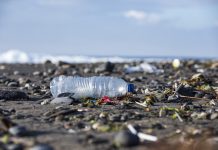


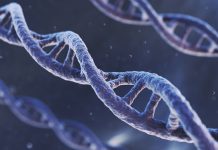
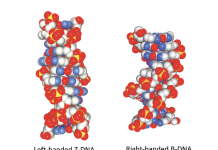
![Opinion: What are the barriers to innovation in medicine? Figure 1: a) Nanotextured spinal implants now in over 30,000 humans with no cases of failure [2]. Such implants are being commercialized by Nanovis. b) Nanosensors now being used to detect the presence of bacteria, inflammatory cells, or bone-forming cells on implants. Such nanosensors can communicate to handheld devices and can respond in real-time to reverse adverse events. Such sensors have been implanted in sheep for up to 12 weeks showing the ability to promote bone growth.](https://www.openaccessgovernment.org/wp-content/uploads/2024/07/Screenshot-2024-07-04-at-09.19.27-218x150.png)


